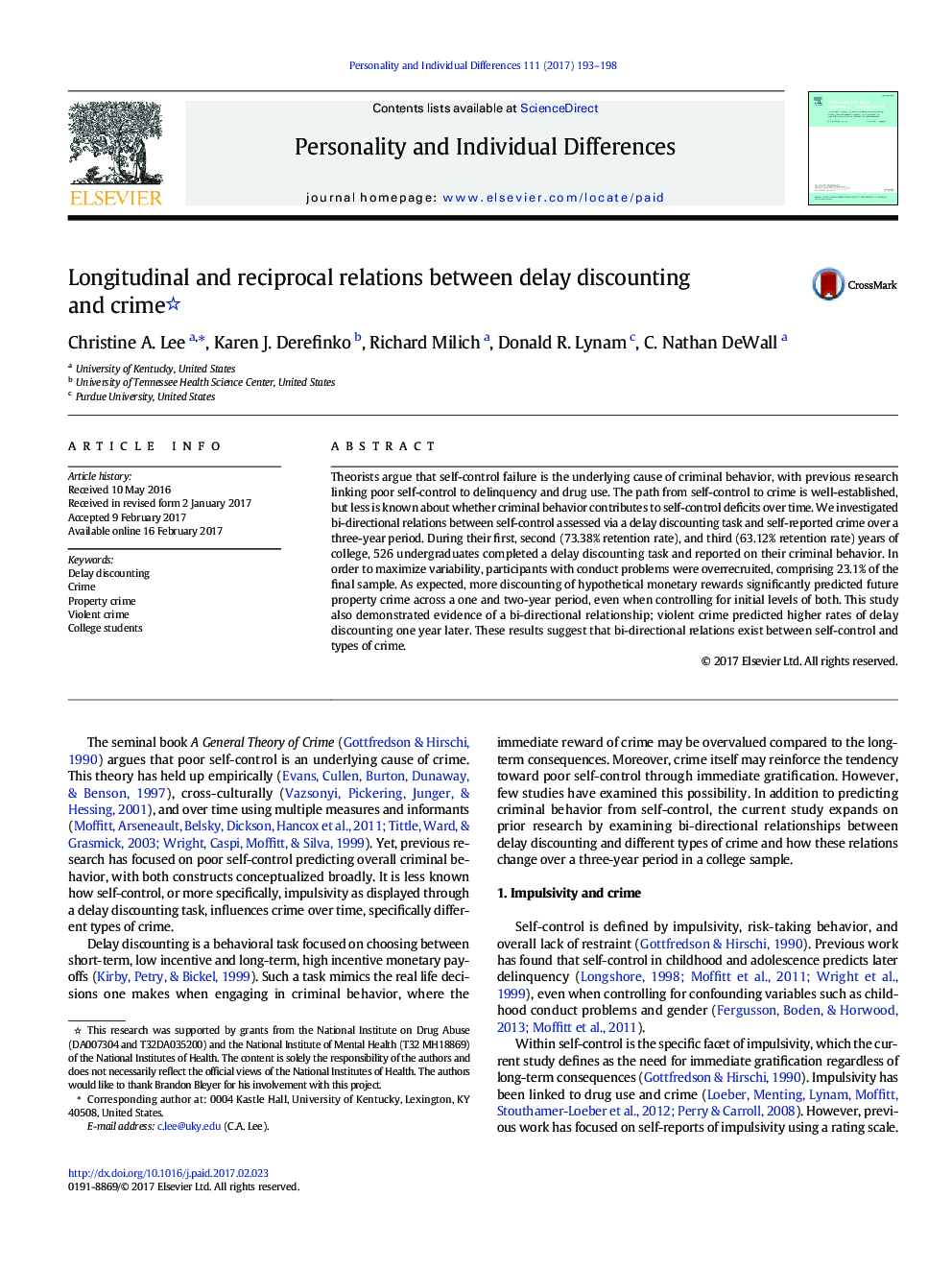| Article ID | Journal | Published Year | Pages | File Type |
|---|---|---|---|---|
| 5035939 | Personality and Individual Differences | 2017 | 6 Pages |
â¢The study examines how delay discounting and crime predict one another over time.â¢Higher rates of delay discounting predicted property crime one and two years later.â¢Higher levels of violent crime were related to higher rates of delay discounting.â¢Helping people engage in long-term goal-consistent behavior may reduce reoffending.
Theorists argue that self-control failure is the underlying cause of criminal behavior, with previous research linking poor self-control to delinquency and drug use. The path from self-control to crime is well-established, but less is known about whether criminal behavior contributes to self-control deficits over time. We investigated bi-directional relations between self-control assessed via a delay discounting task and self-reported crime over a three-year period. During their first, second (73.38% retention rate), and third (63.12% retention rate) years of college, 526 undergraduates completed a delay discounting task and reported on their criminal behavior. In order to maximize variability, participants with conduct problems were overrecruited, comprising 23.1% of the final sample. As expected, more discounting of hypothetical monetary rewards significantly predicted future property crime across a one and two-year period, even when controlling for initial levels of both. This study also demonstrated evidence of a bi-directional relationship; violent crime predicted higher rates of delay discounting one year later. These results suggest that bi-directional relations exist between self-control and types of crime.
